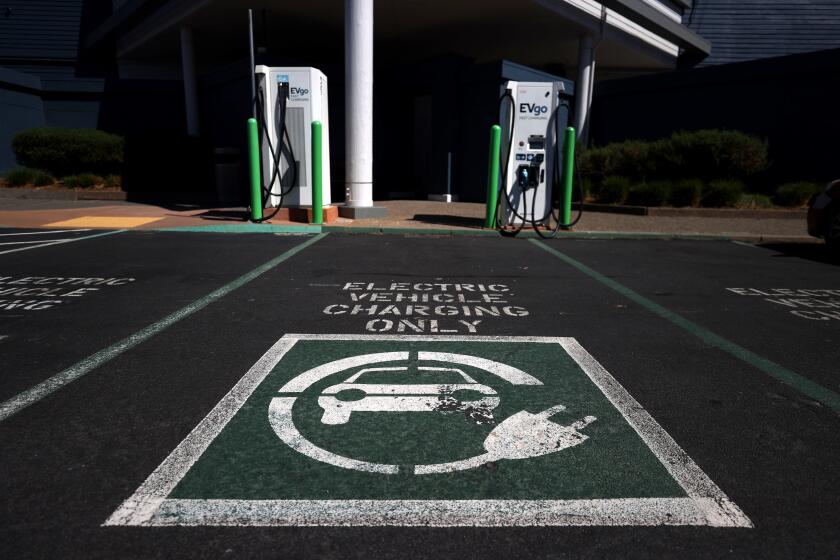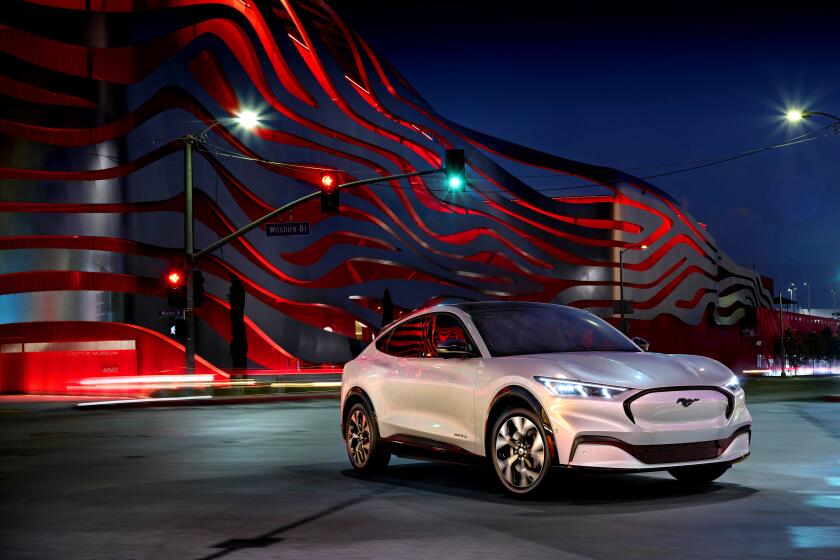Initial Praise for Bush’s Hydrogen Fuel Cell Plan
President Bush’s call Tuesday for a $1.2-billion Freedom Fuel program to help develop a national hydrogen fueling system won praise from environmentalists and automakers alike.
The program isn’t new -- the administration last year established the Freedom Car program, in which the Energy Department and the U.S. Big Three auto companies are jointly developing technology to speed commercial use of hydrogen-powered fuel cell vehicles. The Freedom Fuel program would augment that by stepping up development of hydrogen fuel refining, storage and delivery systems.
About $720 million of the funding Bush proposed in his State of the Union address is new money to be spread over five years; the rest already is part of the Freedom Car program, sources said.
Still, the president’s proposal “is a significant commitment” to developing an alternative to the internal combustion engine, said Max Gates, environmental affairs spokesman for Chrysler Group, the U.S. arm of DaimlerChrysler and one of the Freedom Car participants.
Though National Wildlife Federation President Mark Van Putten recommended caution until details of the plan are disclosed, he said Bush appeared to be calling for “a bold new initiative to inaugurate a new era of alternative fuels.”
Ron Cogan, publisher of the Green Car Journal in San Luis Obispo, described Bush’s proposal as “heartening” on two fronts: the commitment to fuel cell development and the resumption of America’s abandoned leadership role in developing alternative fuels.
The proposed funding would raise the government’s commitment to research on future cars to new levels, Chrysler spokesman Gates said.
The initial program, Partnership for a New Generation of Vehicles, was begun eight years ago by President Clinton and never received more than $140 million in funding in any year. Bush’s plan would nearly double that.
Separately, Ford Motor Co., General Motors Corp. and DaimlerChrysler each are spending $1 billion or more during the next three to five years on fuel cell development.
The initial program focused on fuel economy and development of diesel-electric hybrids that would achieve 70 miles a gallon. It was ended last year by Bush and morphed into the Freedom Car program when the focus was changed to fuel cells.
Fuel cells transform hydrogen and water into electricity through an electrochemical reaction and use the electricity to power electric motors that propel the vehicle.
Automakers say that commercially viable fuel cell vehicles can be ready in 15 to 20 years -- GM aims to have limited numbers in dealerships by 2010 -- but worry that there will not be much of a fueling system to provide the necessary hydrogen.
Researchers have estimated that replicating the national gasoline fueling system with a hydrogen one could cost at least $500 billion.
“For the administration to commit funding at this level to hydrogen infrastructure development is critical,” Gates said.



